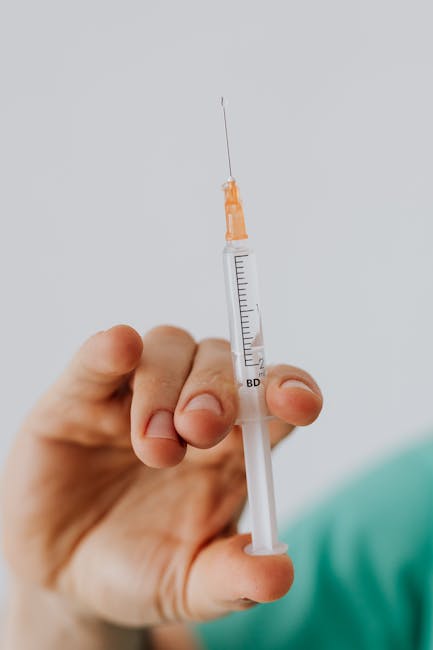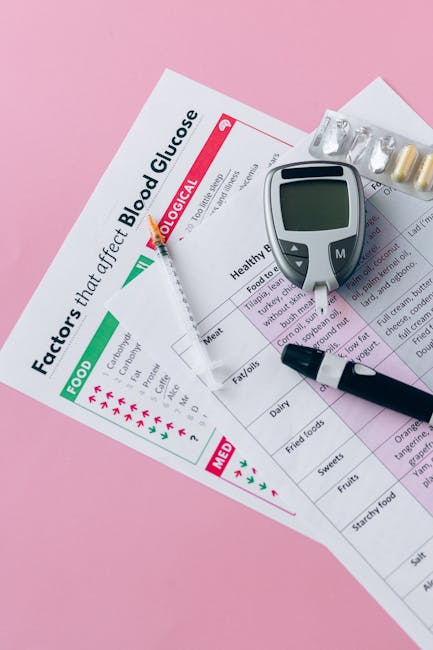Is There a Cure for Diabetes? Exploring Treatments and Hope for the Future
Diabetes, a chronic metabolic disorder affecting millions worldwide, is characterized by high blood sugar levels. While there isn’t a single, universally applicable cure for diabetes yet, significant advancements in research and treatment offer hope for improved management and, potentially, future cures. This article delves into the complexities of diabetes, exploring different types, current treatment strategies, promising research avenues, and the ongoing quest for a definitive cure.
Understanding the Different Types of Diabetes
Diabetes is broadly classified into several types, each with its own underlying causes and management strategies:

- Type 1 Diabetes: An autoimmune disease where the body’s immune system mistakenly attacks and destroys insulin-producing cells in the pancreas. This results in an absolute insulin deficiency, requiring lifelong insulin therapy.
- Type 2 Diabetes: Characterized by insulin resistance, where the body’s cells don’t respond effectively to insulin, and often accompanied by impaired insulin production. Lifestyle modifications, oral medications, and, in some cases, insulin therapy are used to manage type 2 diabetes.
- Gestational Diabetes: A form of diabetes that develops during pregnancy, usually resolving after delivery. It increases the risk of developing type 2 diabetes later in life.
- Other Specific Types: Rare forms of diabetes include monogenic diabetes, cystic fibrosis-related diabetes, and others caused by genetic defects or specific medical conditions.
Current Treatments for Diabetes: Managing, Not Curing
Currently, the focus for diabetes management is on controlling blood sugar levels to prevent or delay the onset of complications. Treatments vary depending on the type of diabetes and individual needs:
Type 1 Diabetes Treatment:
- Insulin Therapy: Essential for type 1 diabetes, involving regular injections or use of an insulin pump to replace the missing insulin.
- Blood Glucose Monitoring: Regular monitoring of blood sugar levels helps adjust insulin doses and maintain optimal control.
- Healthy Lifestyle: A balanced diet, regular exercise, and weight management are crucial for overall health and diabetes management.
Type 2 Diabetes Treatment:
- Lifestyle Modifications: Weight loss, healthy eating, and regular physical activity are often the first line of defense.
- Oral Medications: Various medications help improve insulin sensitivity, increase insulin production, or reduce glucose absorption.
- Insulin Therapy: May be required if lifestyle modifications and oral medications aren’t enough to control blood sugar levels.
Promising Research Avenues: The Search for a Cure
While a complete cure remains elusive, researchers are actively pursuing several promising avenues:
Stem Cell Therapy:
Scientists are investigating the potential of stem cells to regenerate insulin-producing cells in the pancreas, offering a potential cure for type 1 diabetes. Challenges remain in controlling the differentiation and function of transplanted cells.
Immunotherapy:
Immunotherapeutic approaches aim to modulate the immune system to prevent the destruction of insulin-producing cells in type 1 diabetes, potentially halting disease progression.
Gene Therapy:
Gene therapy holds promise in correcting genetic defects responsible for certain types of diabetes. By modifying genes involved in insulin production or action, researchers aim to restore normal glucose metabolism.

Islet Transplantation:
Islet transplantation involves transplanting healthy insulin-producing cells from a donor pancreas into the recipient’s liver. While effective, it’s limited by organ availability and the need for lifelong immunosuppressant medications.
Artificial Pancreas:
The development of artificial pancreas systems, combining continuous glucose monitoring with automated insulin delivery, aims to mimic the function of a healthy pancreas, providing more precise and convenient diabetes management.

The Importance of Prevention and Early Detection
While the search for a cure continues, preventing or delaying the onset of diabetes is crucial. Maintaining a healthy lifestyle, including a balanced diet, regular exercise, and maintaining a healthy weight, significantly reduces the risk of developing type 2 diabetes. Regular checkups and screening can help detect diabetes early, allowing for timely intervention and management.
Conclusion: Hope for the Future
While a universal cure for diabetes is not yet available, ongoing research offers tremendous hope. Advancements in stem cell therapy, immunotherapy, gene therapy, and other approaches are paving the way for potential breakthroughs. In the meantime, effective management strategies are available to control blood sugar levels, prevent complications, and improve the quality of life for individuals with diabetes. The future holds promise for a potential cure, making the fight against diabetes a continuous journey of research and innovation.

